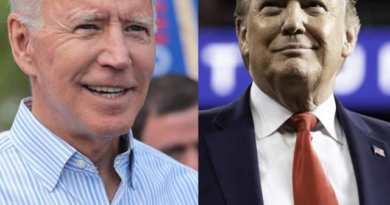GOI toughens FDI norms to stop the opportunistic takeover of Indian companies by China & other neighbouring countries
INDIA has amended foreign direct investment (FDI) policy mandating that all the investments from neighbouring countries, including China, will now require government approval. This effectively closes the “automatic route” for these nations through which an increasing number of foreign firms and individuals had begun to invest of late. The major FDI policy change is interpreted by the concerned people as an effective measure to nip in the bud possibility of “opportunistic takeovers” of Indian companies by those in neighbouring nations as the ongoing Covid-19 pandemic has financially impacted several domestic business houses .Meanwhile, Germany, Italy and Australia are changing their FDI laws to safeguard their industries which are tottering under the impact of the Covid pandemic and are ripe takeover targets. India has taken the move following a Chinese bank picked up 1,75 crore shares of HDFC, India’s second-largest private bank, at rock bottom rates, the government on Saturday amended the foreign direct investment (FDI) policy to avert a similar destructive approach in future. In a notification, GOI says the changes to federal rules on investment are meant to curb opportunistic takeovers/acquisitions by foreign players from neighbouring countries. India has stepped up scrutiny of investments from companies based in neighbouring countries’ ‘’Opportunistic takeovers/acquisitions. investments from an entity in a country that shares a land border with India will require government approval, it said, meaning they cannot go through a so-called automatic route. “These times should not be used by other countries to take over our companies,” a senior government official told Reuters. Similar restrictions are already in place for Bangladesh and Pakistan. But up to now, they have not applied to China and India’s other neighbours including Bhutan, Afghanistan, Myanmar and Nepal. “This will certainly impact sentiment among Chinese investors. However, greenfield investments will not be impacted,” said Santosh Pai, a partner at Indian law firm Link Legal that advises several Chinese companies. Australia has also said all foreign investment proposals will be assessed by a review board during the coronavirus crisis to prevent a fire sale of distressed corporate assets. Germany has taken similar measures. The research group Gateway House said in February Chinese foreign direct investment into India stood at $6.2 billion. China’s Bytedance has plans to invest $1 billion in India, while automakers including Great Wall Motor Co Ltd and MG Motor, a unit of China’s SAIC, have said they intend to invest millions. Delano Furtado, a partner with law firm Trilegal, said the notification may also impact Chinese companies with existing investments in the country. The new rules will also apply to all the existing and planned investments by foreign firms in Indian businesses, the DPIIT said. Several Indian start-ups have existing investment from Chinese investors. For instance, Flipkart has an investment from Tencent (about 5 per cent) and Alibaba owns a significant stake in Paytm.“A fresh infusion of funds into these or Chinese firms wanting to exit their existing investments will now have to require the government’s approval. This step seems to be aimed at having a hostile takeover control measure against China, given that it is investing in and acquiring companies all over the world,” d Atul Pandey, partner at law firm Khaitan & Co, told The Business Standard. Most experts have lauded the move. “Such a restriction is warranted at least during the time India Inc recovers and stands on its feet again. This shield would also apply to companies in the consumer retail and automotive sectors where FDI was otherwise under the automatic route,” said Anil Talreja, partner and leader, Consumer Business, Deloitte India. government’s diehard critic Rahul Gandhi has appreciated the amendment to Foreign Direct Investment (FDI) policy for safeguarding Indians owned companies from being taken over by foreigners. “I thank the Government for taking note of my warning and amending the FDI norms to make it mandatory for Government approval in some specific cases,” he has written on Twitter. Gandhi had cautioned the government after the People’s Bank of China invested in the Mumbai headquartered HDFC and took up a stake in the finance company. (edited by PKC with input from The Business Standard & other sources)




